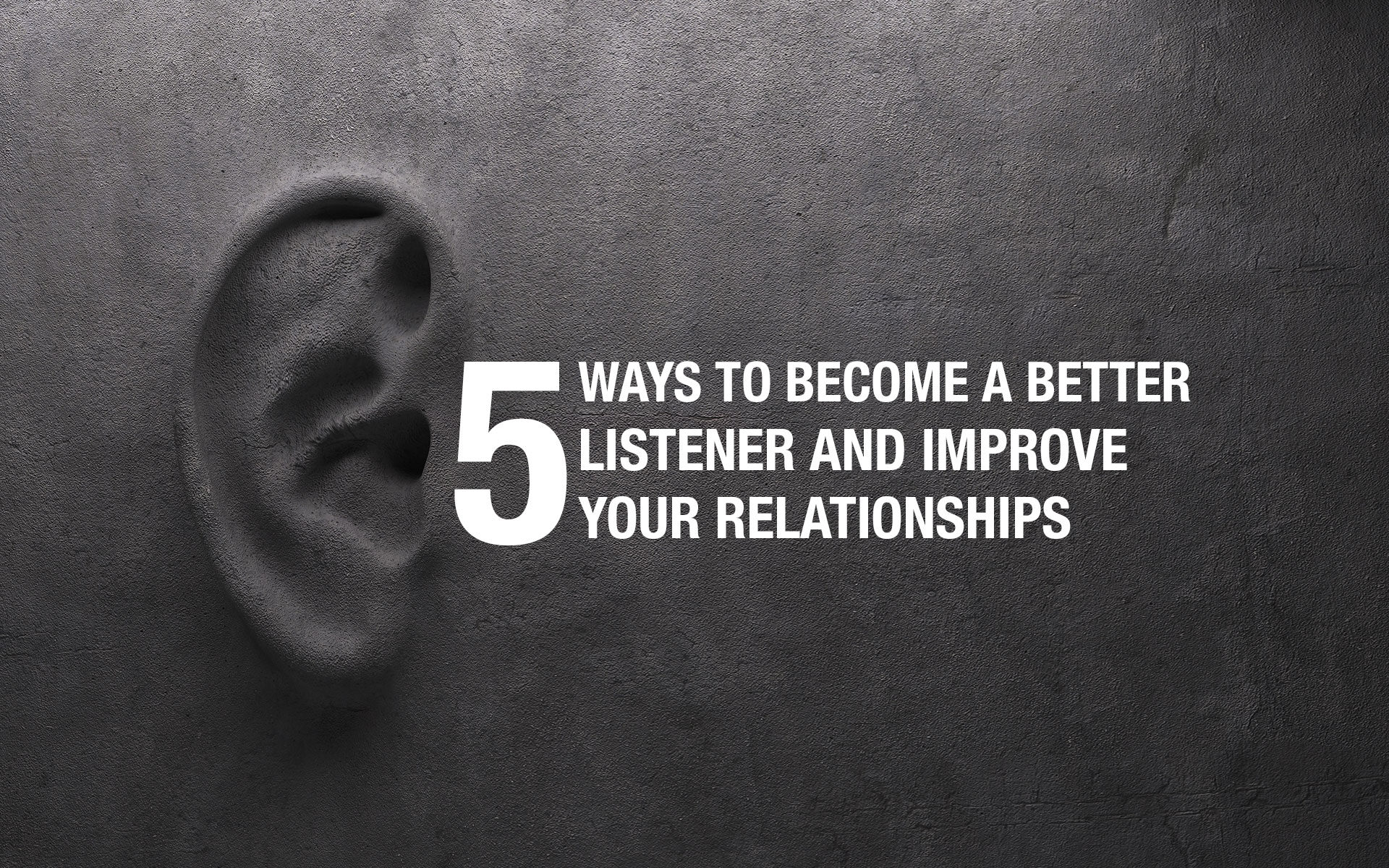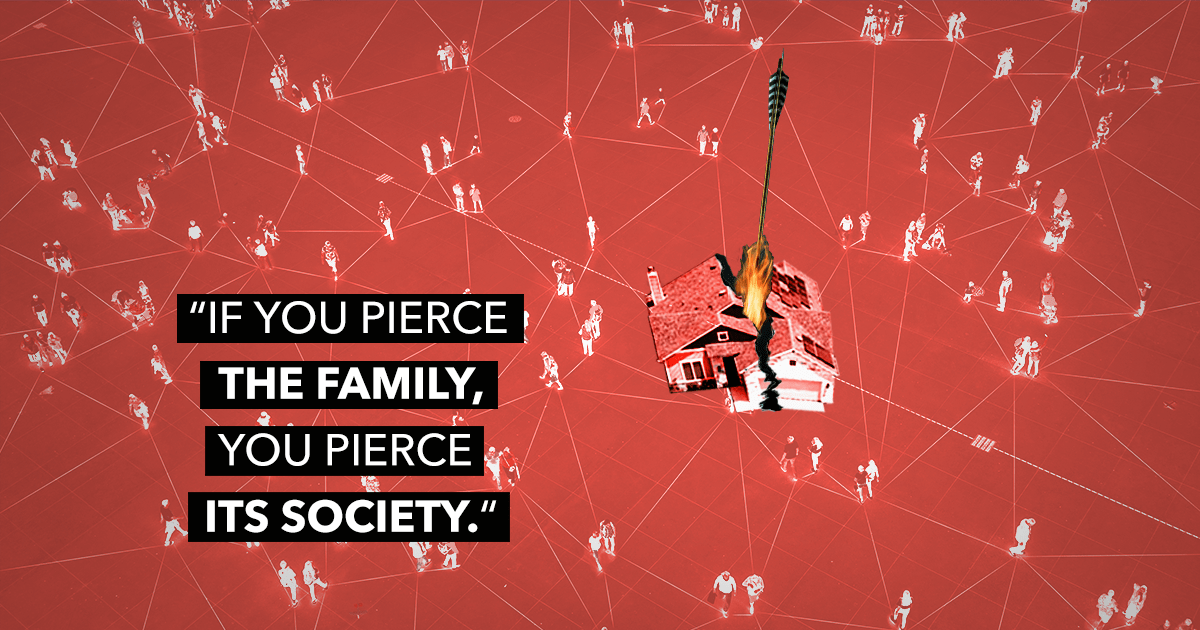Would you like to have better relationships? If so, then it's essential to enhance your communication skills and become a good listener.
Whether it's a romantic relationship, a friendship, a co-worker, or someone else, listening is an essential part of good communication. Of course, listening and speaking are both important in conversation. But listening first tends to build a foundation from which you'll be heard and understood.
You'd think that listening would be easy. But, interestingly, active listening is very different from simply hearing what someone is saying.
In essence, active listening is when you're fully engaged in a conversation. You're focusing on the person with whom you're speaking and asking pertinent follow-up questions, if needed. You're not glancing at your phone or other device, but looking up at the other person with good eye contact while you're talking to each other. You're present.
Why is listening so important?
• When you listen, you show you care about the other person. He or she feels heard and respected. Listening builds trust in the relationship and you feel more connected.
• When you listen, you learn. You discover the thoughts and ideas of the person with whom you are speaking to. And you may uncover new information to make a better decision or understand the other person's perspective.
• When you listen, you're showing patience (which is a fruit of the Spirit, as listed in Galatians 5:22-23: "But the fruit of the Spirit is love, joy, peace, patience, kindness, goodness, faithfulness, gentleness and self-control.")
On the converse, when you don't listen, the other person doesn't feel heard or respected. Instead, he or she can feel slighted, hurt, or rejected. And that can lead to conflict or arguments.
Of course, conversation is a two-way street. You have the right to be listened to and heard as well.
Why is it hard to listen?
Some people find it difficult to listen. Most often, people are so concerned about what they're going to say next that they don't genuinely listen to the other person.
Or, they want to jump directly into solving the problem before they've heard all of the information.
The sad fact is that most people are selfish. They think the task they're doing at the moment is more important than what you have to say. And it takes time and effort to pay attention and truly connect.
Most likely you've seen a couple sitting across from each other at a restaurant, but they're not engaged in conversation. They're distracted. One of them is looking down at his or her cell phone while the other is trying to carry on a conversation. Some couples sit through their entire meal without speaking.
Another reason people find it hard to listen is that it's not a good time to talk.
For instance, let's say you're trying to finish a project at work before the end of the day, and a co-worker comes by to chat about her Tahiti vacation. In that case, you have a genuine need to delay the conversation. You could say, "Thanks for stopping by. I'd love to hear about your trip, but I'm on a deadline. Can we talk in the morning?"
How to become a better listener
It's possible to become better at active listening. Here are five effective ways to improve your listening skills and your relationships:
1. Maintain eye contact. Look at the person with whom you're speaking to. It shows that you're engaged in the conversation and that you care.
2. Check your body language. In addition to eye contact, you could also nod slightly to show you understand or demonstrate empathy.
3. Ask open-ended questions. That is, ask questions that don't require just a "yes" or "no" answer. Especially on a date, be genuinely curious about the other person. Ask questions and listen for the answers. It builds connection.
4. Be fully present. Don't multi-task. Pay attention to what the other person is saying.
5. Don't interrupt. Let the other person finish talking before you reply.
In the end, active listening is a choice. Indeed, it takes focus and emotional energy to really listen to another person. But, it's definitely worth the effort to build relationships that are emotionally strong and healthy.
Aim to be a better listener. You'll be glad you did.
…Everyone should be quick to listen, slow to speak and slow to become angry.
(James 1:19 NIV)
Whether it's a romantic relationship, a friendship, a co-worker, or someone else, listening is an essential part of good communication. Of course, listening and speaking are both important in conversation. But listening first tends to build a foundation from which you'll be heard and understood.
You'd think that listening would be easy. But, interestingly, active listening is very different from simply hearing what someone is saying.
In essence, active listening is when you're fully engaged in a conversation. You're focusing on the person with whom you're speaking and asking pertinent follow-up questions, if needed. You're not glancing at your phone or other device, but looking up at the other person with good eye contact while you're talking to each other. You're present.
Why is listening so important?
• When you listen, you show you care about the other person. He or she feels heard and respected. Listening builds trust in the relationship and you feel more connected.
• When you listen, you learn. You discover the thoughts and ideas of the person with whom you are speaking to. And you may uncover new information to make a better decision or understand the other person's perspective.
• When you listen, you're showing patience (which is a fruit of the Spirit, as listed in Galatians 5:22-23: "But the fruit of the Spirit is love, joy, peace, patience, kindness, goodness, faithfulness, gentleness and self-control.")
On the converse, when you don't listen, the other person doesn't feel heard or respected. Instead, he or she can feel slighted, hurt, or rejected. And that can lead to conflict or arguments.
Of course, conversation is a two-way street. You have the right to be listened to and heard as well.
Why is it hard to listen?
Some people find it difficult to listen. Most often, people are so concerned about what they're going to say next that they don't genuinely listen to the other person.
Or, they want to jump directly into solving the problem before they've heard all of the information.
The sad fact is that most people are selfish. They think the task they're doing at the moment is more important than what you have to say. And it takes time and effort to pay attention and truly connect.
Most likely you've seen a couple sitting across from each other at a restaurant, but they're not engaged in conversation. They're distracted. One of them is looking down at his or her cell phone while the other is trying to carry on a conversation. Some couples sit through their entire meal without speaking.
Another reason people find it hard to listen is that it's not a good time to talk.
For instance, let's say you're trying to finish a project at work before the end of the day, and a co-worker comes by to chat about her Tahiti vacation. In that case, you have a genuine need to delay the conversation. You could say, "Thanks for stopping by. I'd love to hear about your trip, but I'm on a deadline. Can we talk in the morning?"
How to become a better listener
It's possible to become better at active listening. Here are five effective ways to improve your listening skills and your relationships:
1. Maintain eye contact. Look at the person with whom you're speaking to. It shows that you're engaged in the conversation and that you care.
2. Check your body language. In addition to eye contact, you could also nod slightly to show you understand or demonstrate empathy.
3. Ask open-ended questions. That is, ask questions that don't require just a "yes" or "no" answer. Especially on a date, be genuinely curious about the other person. Ask questions and listen for the answers. It builds connection.
4. Be fully present. Don't multi-task. Pay attention to what the other person is saying.
5. Don't interrupt. Let the other person finish talking before you reply.
In the end, active listening is a choice. Indeed, it takes focus and emotional energy to really listen to another person. But, it's definitely worth the effort to build relationships that are emotionally strong and healthy.
Aim to be a better listener. You'll be glad you did.
…Everyone should be quick to listen, slow to speak and slow to become angry.
(James 1:19 NIV)
Jackie M. Johnson is an author and blogger who writes inspiring content on growing a better life, the power of prayer, and encouragement for singles. Jackie has a heart to encourage single adults of all ages, and she has led numerous small groups and Bible studies for singles. Her books include the breakup recovery guide, When Love Ends and the Ice Cream Carton Is Empty, Power Prayers for Women, and Praying with Power When Life Gets Tough. Connect with Jackie at JackieJohnsonCreative.com.












